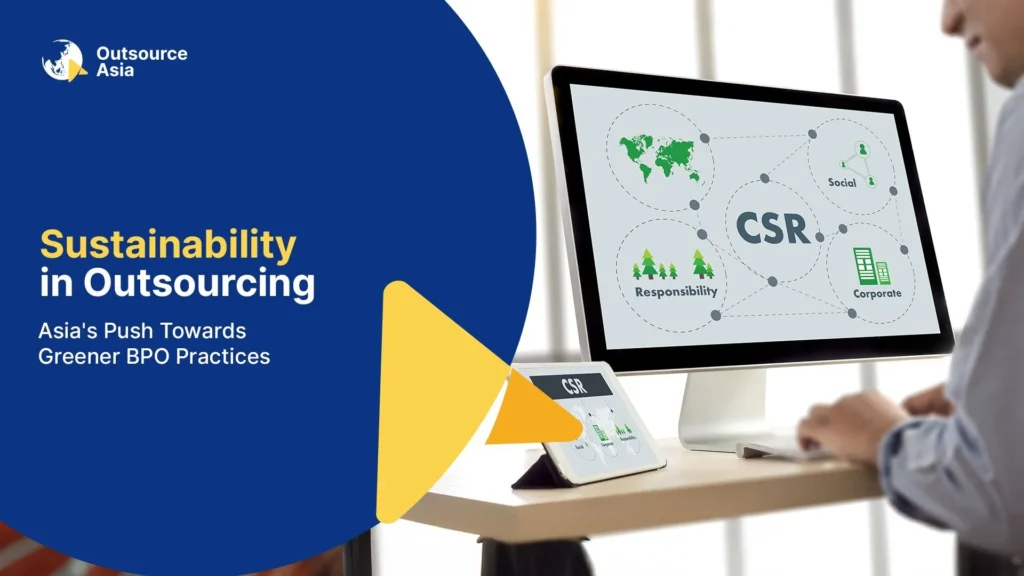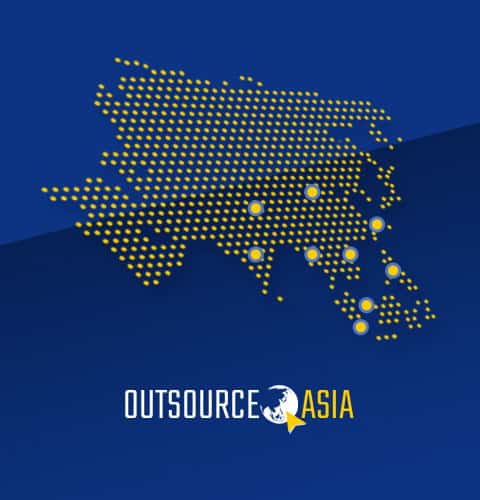The humming data centers of Bangalore and the gleaming office towers of Manila have long been the symbols of a globalized economy, monuments to the relentless pursuit of efficiency and cost-effectiveness. For decades, Asia has been the world’s back office, the engine room for Business Process Outsourcing (BPO). The narrative was simple: Western companies could streamline operations and slash expenses by offshoring tasks to the continent’s vast, skilled, and cost-competitive workforce. But a quiet, powerful transformation is now underway. The story is no longer just about profit margins; it’s about purpose, the planet, and people. Asia’s BPO industry is at the forefront of a seismic shift, championing a new model where sustainability is not a footnote but a core business strategy.
This evolution is driven by several factors. On one hand, global clients, facing pressure from socially conscious investors and consumers, are extending their Environmental, Social, and Governance (ESG) standards to their entire supply chain. An outsourcer’s carbon footprint is now their client’s carbon footprint. On the other hand, there is a growing recognition within Asia itself that sustainable practices are not a burden, but a competitive advantage. In a region acutely vulnerable to the impacts of climate change, the push for greener operations is a matter of business resilience as much as it is of corporate responsibility.
The most visible dimension of this change is the “green” in greener BPO practices. The industry, by its nature, is resource-intensive, consuming vast amounts of energy to power buildings and technology 24/7. In response, a new generation of BPO infrastructure is being built with sustainability at its core. In the Philippines, a global leader in the BPO sector, real estate developers are increasingly constructing LEED (Leadership in Energy and Environmental Design)-certified buildings specifically for their outsourcing tenants. These aren’t just cosmetic upgrades; they incorporate energy-efficient HVAC systems, rainwater harvesting, and smart lighting, which significantly reduce operational costs and environmental impact.
Beyond new construction, established BPO giants are retrofitting their existing spaces. Companies are installing solar panels on their rooftops, a logical step in sun-drenched Southeast Asia, to generate their own clean energy. The sheer volume of electronic waste, from headsets to computer monitors, is being addressed through comprehensive e-waste management and recycling programs. Accenture, a major player in the region, has set an ambitious goal of achieving 100% e-waste recycling by 2025, a testament to the industry’s growing commitment to a circular economy. The pandemic-induced shift to hybrid work models has also been leveraged as a sustainability tool. By reducing the number of employees commuting daily, companies are effectively shrinking their collective carbon footprint, a simple yet profoundly impactful change.
However, the heart of the BPO industry has always been its people, and the social pillar of sustainability is where Asia’s push is perhaps most profound. The initial boom in outsourcing undeniably brought social benefits by creating millions of jobs in developing nations, improving standards of living and fostering a new middle class. Today, the focus has matured from simple job creation to fostering high-quality, sustainable careers.
Leading BPOs are investing heavily in employee well-being and development. Recognizing the high-pressure nature of the work, mental health and wellness programs are becoming standard, offering everything from counseling services to mindfulness workshops. There is a concerted effort to foster diversity and inclusion, creating safe and equitable workplaces for women, LGBTQ+ individuals, and people with disabilities. These initiatives are not just altruistic. In an industry plagued by high attrition rates, creating a positive and supportive work environment is a critical business imperative, leading to higher employee retention, improved morale, and ultimately, better customer service.
Furthermore, Asian BPOs are embedding themselves in their local communities. In countries like the Philippines, which are frequently impacted by natural disasters, BPO companies are often among the first responders, organizing relief efforts and fundraising drives. They partner with local NGOs on education and environmental programs, understanding that their success is intrinsically linked to the health and prosperity of the communities they operate in.
Governing this entire transition is the third pillar of ESG: governance. For an industry built on trust and handling sensitive client data, strong governance is non-negotiable. Asian BPOs are adopting more transparent reporting standards, allowing clients to scrutinize their ESG performance. This includes everything from ethical data handling and privacy protocols to anti-corruption policies and ensuring diversity in leadership. This transparency builds the trust necessary for long-term partnerships and signals to the market that these companies are serious about their commitments.
Of course, the path is not without its challenges. Fully committing to a sustainable growth plan can be a significant undertaking, especially for smaller players in the market. The initial capital investment for green technology can be substantial, and navigating the patchwork of environmental regulations across different Asian countries requires diligence. There is also the persistent risk of “greenwashing”—companies making grand pronouncements without genuine action.
Yet, the momentum is undeniable. The conversation in the boardrooms of Manila, Mumbai, and Kuala Lumpur has fundamentally changed. The outsourcing industry, which once helped the world become more economically interconnected, is now helping it become more sustainable. By partnering with vendors who share their ESG ideals and consistently implementing greener practices, these companies are creating a ripple effect across the entire economy. A single company’s decision to reduce its carbon footprint or improve employee wellness, when multiplied by the scale of Asia’s BPO sector, can have a significant global impact.
The future of outsourcing is being rewritten in Asia. It’s a future where business success is measured not just by financial returns, but by its positive impact on the world. As this transformation continues, Asia’s BPO industry is poised to prove that profitability and sustainability are not competing interests, but two sides of the same coin, paving the way for a more responsible and resilient global economy.
Ready to leverage Asia’s outsourcing potential?
Contact Outsource Asia today to discover how we can help your business thrive with customized, AI-driven outsourcing solutions.


